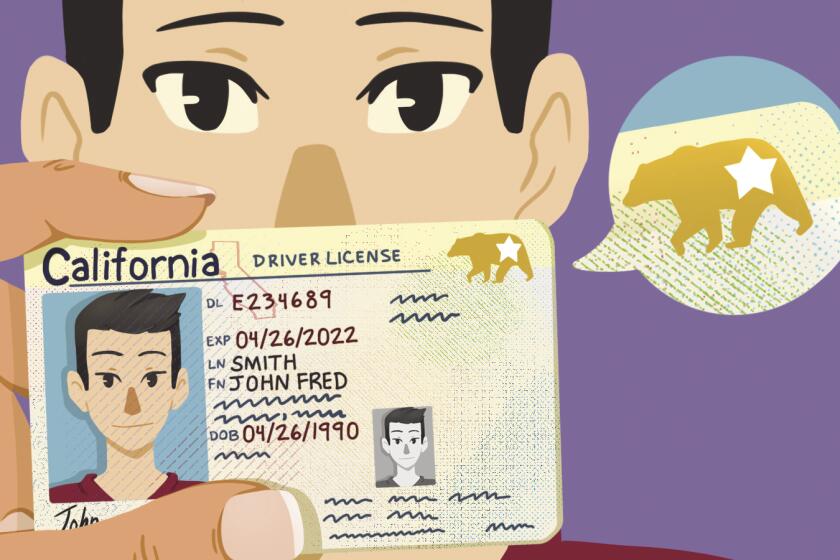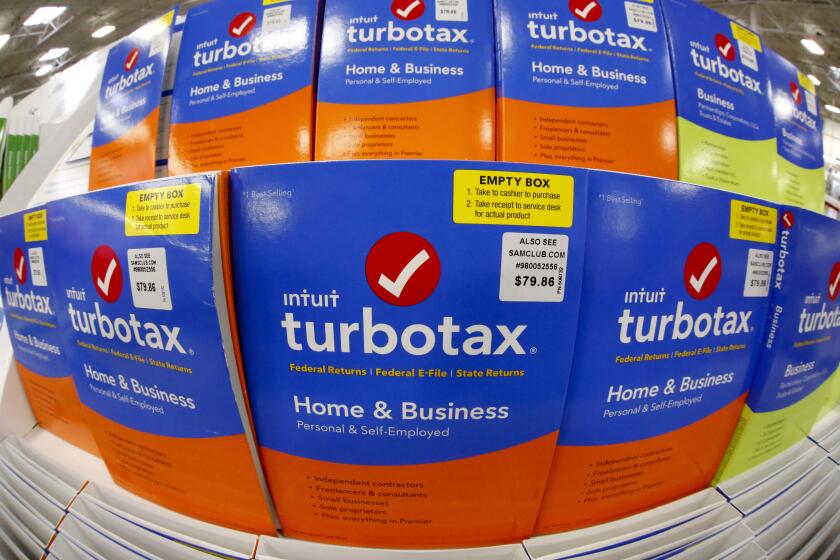Another stimulus is available for Californians. Are you eligible?

- Share via
More Californians can expect another $600 or $1,100 stimulus check, thanks to the second phase of the Golden State Stimulus.
Originally signed by Gov. Gavin Newsom in February, the second iteration of the program will make funds available to low- and middle-income Californians as the state economy continues to recover from the effects of the lockdowns and restrictions that were lifted on June 15. The first phase of the Golden State Stimulus plan made either $600 or $1,200 available to eligible Californians. This second stimulus package, approved by Newsom on Monday, will help bridge the gaps for families in California still struggling to recover.
Separate from the stimulus checks made available through the American Rescue Plan Act of 2021, these funds are only available to eligible Californians. Two-thirds of Californians are expected to qualify. Read on to see if you’re one of them.
Gov. Gavin Newsom signs budget legislation that will trigger a massive cash payout to help residents and businesses recover from the pandemic.
Who’s eligible
To receive the Golden State Stimulus I, you must:
- File your 2020 taxes by Oct. 15
- Either:
- Be a CalEITC recipient
- Or make less than $75,000 per year and file with an ITIN
- Have lived in California for more than half the tax year of 2020
- Be a California resident when the stimulus check is issued
- Not be eligible to be claimed as a dependent on someone else’s taxes
You can qualify for CalEITC, or earned income tax credit, if you:
- Made at least $30,000 in taxable income in 2020
- Are at least 18 or have a qualifying child
- Didn’t file as “married” or “registered domestic partner filing separate”
Earned income that is considered by the state includes wages noted on a W-2, income made from self-employment, tips received, and any other wages subject to California withholding.
An ITIN, or individual taxpayer identification number, allows undocumented individuals to file their taxes without a Social Security number. It doesn’t allow them any federal benefits, but the Golden State Stimulus does allow for ITIN filers to receive support.
For undocumented people, to be able to receive the Golden State Stimulus, you must have filed your taxes with your ITIN. On average, an ITIN application takes up to seven weeks to process, according to the IRS website. But applications are backlogged, according to Sasha Feldstein, economic justice policy manager at the California Immigrant Policy Center, meaning that the process could take even longer.
Golden State Stimulus II expands eligibility and includes those who may not have received funds the first time.
To receive the funds under the second phase of the plan, you must:
- File your 2020 taxes by Oct. 15
- Have a California adjusted gross income (CA AGI) of $1 to $75,000
- Have wages of $75,000 or less
- Have lived in California for more than half the tax year of 2020
- Be a California resident when the stimulus check is issued
- Not be eligible to be claimed as a dependent on someone else’s taxes
If you’re not eligible for the second stimulus, you may still be eligible for the first.
How much will I get?
There are four amounts you may be eligible for from Golden State Stimulus II: $500, $600, $1,000 or $1,100.
The $500 is available to:
- Those who qualified for the first stimulus and claimed a dependent on their 2020 taxes
- Eligible families of those without proper legal documentation
You may get $600 if you:
- Didn’t qualify for the first stimulus and did not claim a dependent on your 2020 taxes
And you may get the $1,100 if you:
- Did not qualify for the first stimulus and claimed more than one dependent on you 2020 taxes
The $1,000 amount is only for ITIN filers who qualified for the first stimulus and claimed a dependent on their 2020 taxes. Those filing with a Social Security number are eligible for more funds.
Payments will be made either by mailed check or direct deposit, depending on how you requested your refund on your 2020 tax returns.
Who isn’t eligible
The state partners with the Auto Club of Southern California to ease access.
There are two caveats with the second iteration of the Golden State Stimulus. For those who made less than $30,000 and received a state stimulus check earlier this year and did not claim a dependent, a second payment is not coming. Likewise, ITIN filers without dependents do not qualify this time around.
When to expect payment
Distribution of both phases has depended on when you’ve filed your 2020 taxes.
For those who filed their tax returns between Jan. 1 and March 1, distribution of stimulus payments began after April 15. And for those who filed between March 2 and April 23, distribution began after May 1.
Those who have waited to file until after April 23 have had to wait up to 45 days after filing for a direct deposit or 60 days for a mailed check.
To make sure you don’t miss out on your stimulus, make sure you file before Oct. 15.
Make sure you’re not missing out
With every two out of three Californians set to receive a check, you want to make sure you’re not missing out on what you may be owed.
Remember: To receive a stimulus check, whether from the federal government or the state, you have to file your taxes.
You may not normally file taxes because of a multitude of reasons. There are several free online resources including GetYourRefund or MyFreeTaxes for easy filing. The IRS programs Volunteer Income Tax Assistance and Tax Counseling for the Elderly, for those over 60, provide in-person services.
You might not need to fork over any money to file your taxes online. Here are websites that let you file for free as the May 17 IRS filing date nears.
More to Read
Sign up for Essential California
The most important California stories and recommendations in your inbox every morning.
You may occasionally receive promotional content from the Los Angeles Times.













